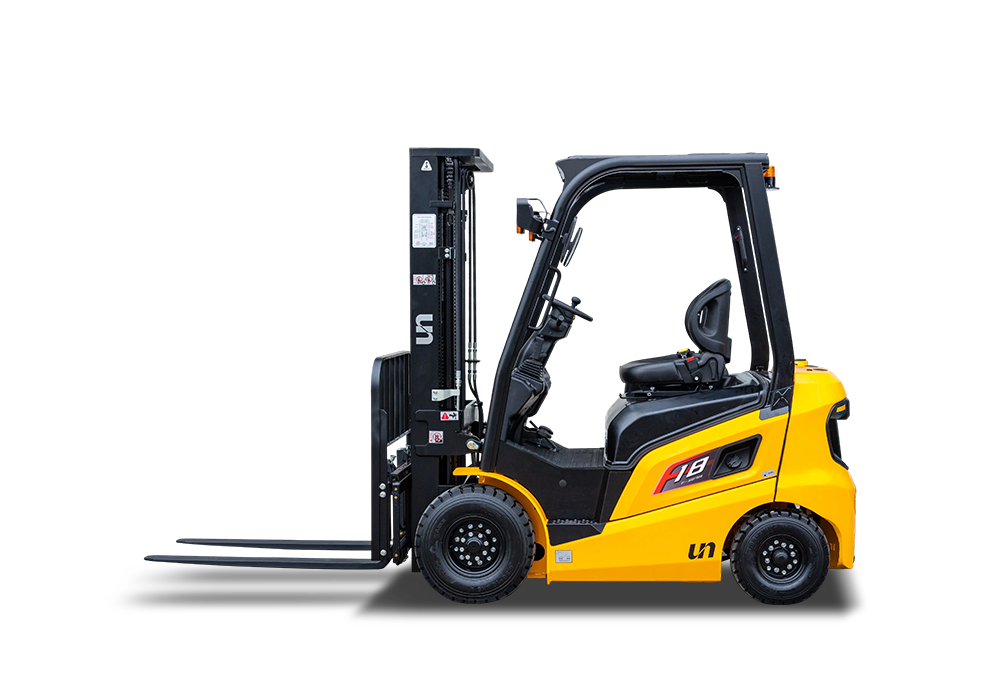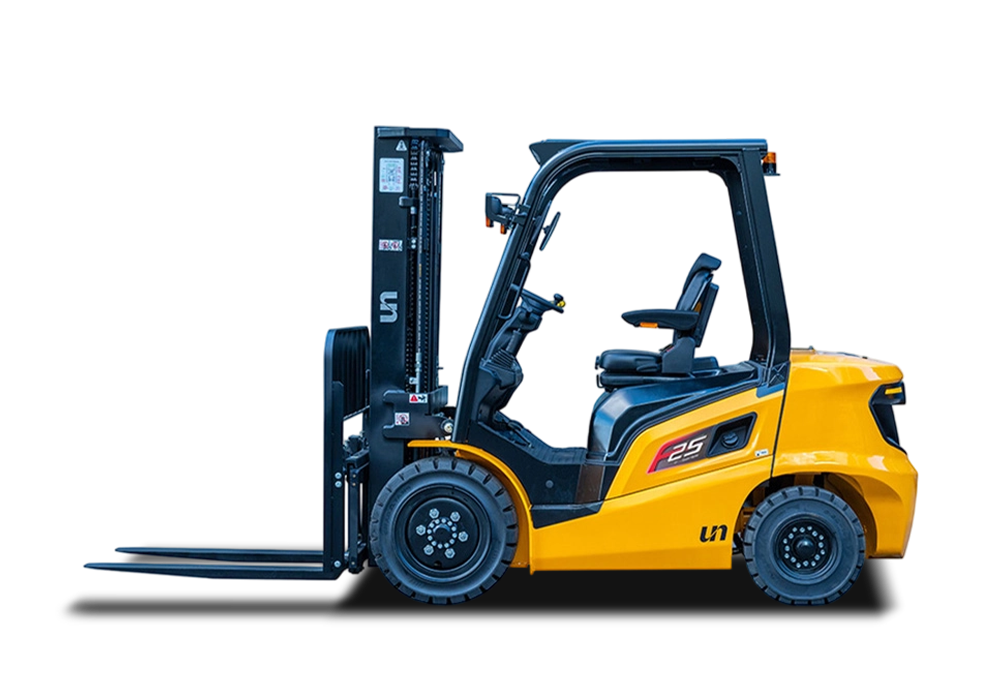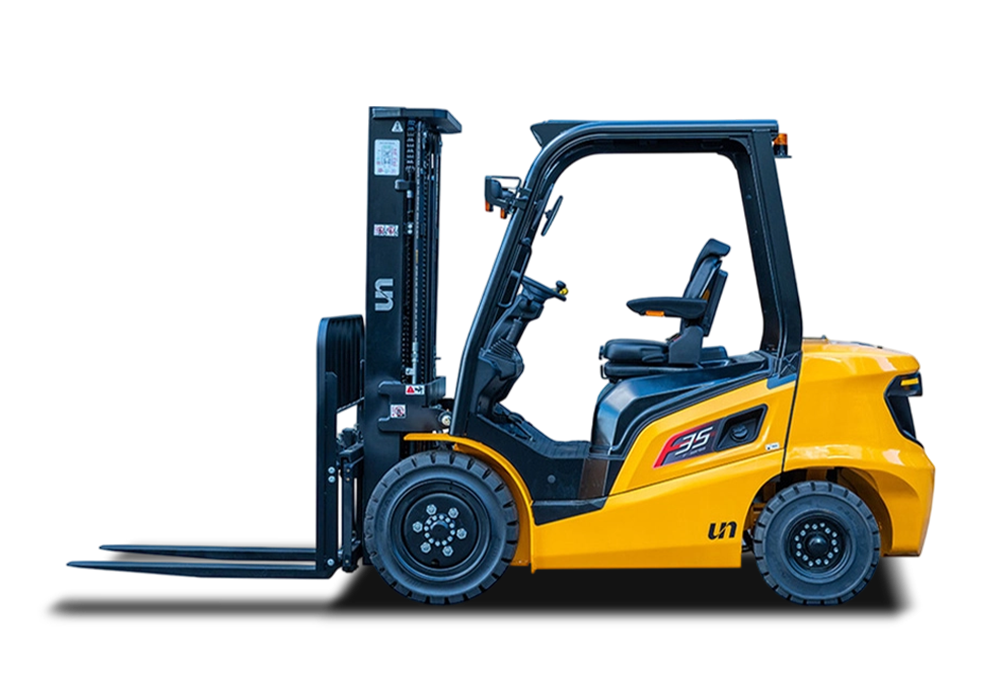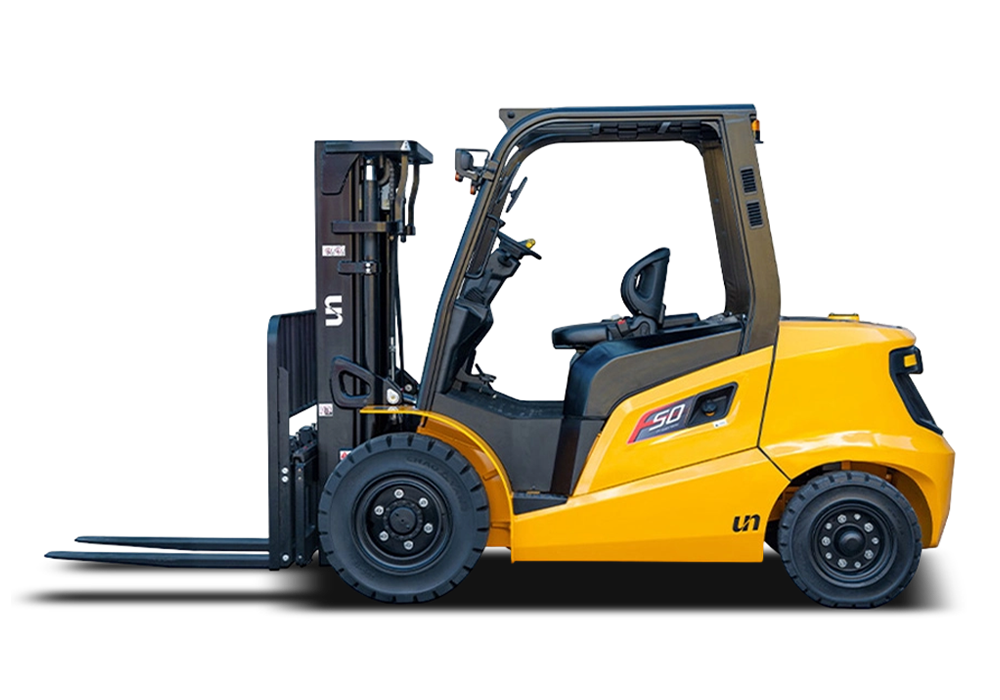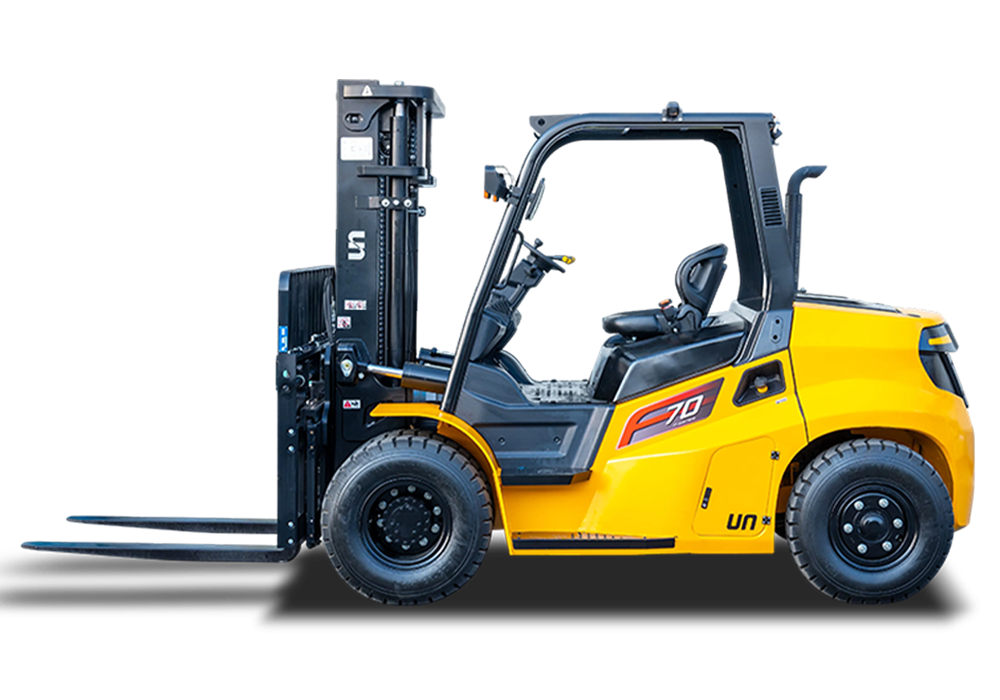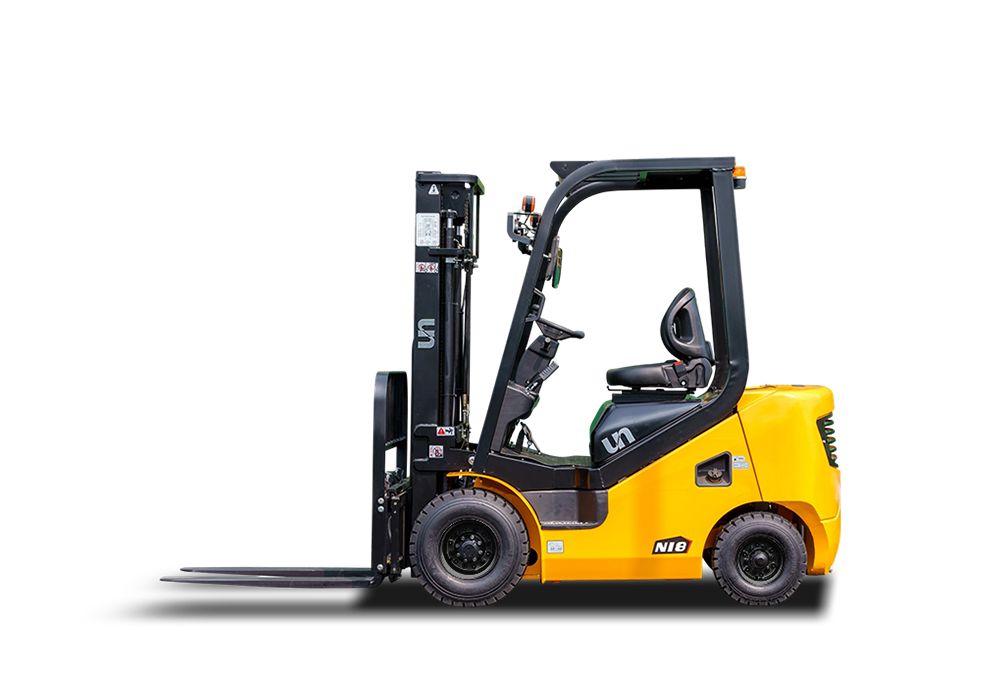What aspects should be considered during routine maintenance of diesel forklifts?
Admin 2025-11-05What Aspects Should Be Considered During Routine Maintenance of Diesel Forklifts?
Diesel forklifts are an essential piece of equipment in many industries, offering heavy-duty lifting capabilities for warehouses, construction sites, and manufacturing plants. However, to ensure that these machines perform efficiently and safely, regular maintenance is crucial. Diesel forklifts are subjected to demanding tasks, which can lead to wear and tear over time. Routine maintenance helps to prevent breakdowns, extend the lifespan of the forklift, and maintain optimal performance. In this article, we will discuss the key aspects that should be considered during the routine maintenance of diesel forklifts, highlighting important areas such as engine maintenance, fluid checks, brake systems, tire care, and more.
Engine Maintenance
The engine is the heart of any diesel forklift. Its performance directly affects the forklift's ability to perform its tasks efficiently. Therefore, one of the most important aspects of routine maintenance is ensuring the engine is in good condition. Regular engine checks should include examining the fuel system, checking for oil leaks, and inspecting the exhaust system for any blockages or damage. Diesel engines also require timely oil changes to ensure proper lubrication and to prevent overheating or excessive friction that could lead to engine failure.
In addition to oil changes, the air filter should be checked regularly and replaced when necessary. A clogged air filter can reduce engine efficiency by limiting airflow and causing the engine to work harder than required. Cleaning or replacing the fuel filter is also essential to ensure the proper functioning of the fuel system, as a dirty or clogged filter can lead to fuel contamination, engine misfire, and reduced performance. The cooling system should be inspected for any signs of wear, leaks, or corrosion, as overheating can cause permanent engine damage.
Fluid Checks and Changes
Routine checks of the various fluids in a diesel forklift are a vital part of maintaining the machine’s overall functionality. The primary fluids to check include engine oil, hydraulic fluid, transmission fluid, coolant, and brake fluid. Each of these fluids plays a crucial role in the operation of different forklift components, and ensuring they are at optimal levels is essential for smooth performance.
Engine oil must be checked regularly to ensure it is clean and at the proper level. Dirty or low oil can cause engine parts to wear out prematurely. Hydraulic fluid should also be checked for cleanliness and proper levels since the hydraulic system controls the lifting mechanism of the forklift. Low or contaminated hydraulic fluid can cause the forklift’s lifting capacity to decline and lead to system malfunctions.
Transmission fluid ensures that the transmission system operates smoothly. Low or old transmission fluid can cause slipping gears, difficulty in shifting, or total transmission failure. The coolant is essential for maintaining the engine at the correct operating temperature, preventing overheating, and improving engine longevity. Lastly, brake fluid must be inspected to ensure proper braking function. Low brake fluid levels or contaminated fluid can impair the forklift’s stopping ability, which poses a safety risk.
Brake System Inspection
The brake system is one of the most critical components for the safety of any forklift operator. It is essential to inspect the entire braking system as part of regular maintenance. The main areas to check are the brake pads, brake fluid, and the overall condition of the brake lines. Brake pads naturally wear down over time due to friction, and worn-out pads must be replaced to prevent inefficient braking or damage to the brake rotors.
Brake fluid should be checked regularly to ensure it is at the proper level and is not contaminated with moisture or debris. Moisture in brake fluid can cause corrosion within the brake system, leading to reduced braking power and the potential for system failure. The brake lines should be examined for any signs of leaks, cracks, or damage. A brake line leak can result in a loss of pressure, leading to reduced brake effectiveness.
Tire Maintenance
Tires are one of the most important factors in maintaining a forklift’s performance and stability. Regular inspection of the forklift tires is necessary to ensure that they are in good condition. Tire pressure should be checked frequently, as improper tire pressure can lead to poor handling, increased fuel consumption, and premature tire wear. Overinflated tires can cause reduced traction, while underinflated tires can lead to excessive friction and overheating.
The tread depth of the tires should also be checked regularly to ensure sufficient grip on the surface. Worn-out tires with low tread depth can increase the risk of accidents due to reduced traction, especially on slick or uneven surfaces. In addition, forklift tires are subject to damage from sharp objects, debris, and uneven surfaces, so it's important to inspect them for any signs of cuts, punctures, or abrasions that could lead to tire failure.
Battery and Electrical System
While diesel forklifts are powered by an internal combustion engine, they still rely on electrical components to power the ignition system, lights, and other features. The battery plays a significant role in starting the forklift, and it should be checked regularly for charge levels, corrosion, and general condition. A weak or discharged battery can cause the forklift to fail to start, leading to downtime and lost productivity.
Battery terminals should be cleaned to remove any corrosion, which can cause electrical resistance and prevent the forklift from starting properly. If the forklift uses a 24-volt or 48-volt electrical system, ensuring the battery voltage is within the recommended range is important to prevent issues with power delivery. In addition, it is advisable to check the alternator and wiring for any signs of wear or damage, as electrical problems can affect the performance and safety of the forklift.
Hydraulic System Maintenance
The hydraulic system is responsible for the lifting and lowering of the forklift’s forks and load. Routine maintenance of the hydraulic system is necessary to keep the forklift operating at optimal capacity. This involves checking the hydraulic fluid levels, inspecting the hoses and seals for leaks or damage, and ensuring that the hydraulic cylinders function smoothly.
If the hydraulic system is not maintained properly, the forklift may experience reduced lifting capacity, slow lifting speeds, or complete hydraulic failure. Regularly inspecting and replacing hydraulic fluid as necessary, and checking for leaks in the hoses and seals, can help prevent costly repairs and downtime. It is also important to monitor the condition of the hydraulic pump, as wear or damage can result in decreased performance and the need for pump replacement.
Cleaning and Exterior Maintenance
Maintaining the exterior of the forklift is equally important for its long-term performance. Regular cleaning helps prevent the buildup of dirt, debris, and grease, which can interfere with the functioning of moving parts and lead to excessive wear. Cleaning the engine compartment is also important to prevent dirt and dust from clogging critical components such as air filters and radiators.
Forklift frames should be checked for any signs of rust or corrosion, especially in environments where forklifts are exposed to moisture or harsh chemicals. A coat of protective paint or anti-corrosion treatment can help prevent rust from forming and extend the life of the forklift. Checking the lights, mirrors, and safety features is also crucial to ensure the forklift is operating safely and in compliance with workplace regulations.
Routine Inspections and Professional Service
In addition to regular checks and maintenance performed by operators, it is advisable to have the forklift professionally inspected and serviced at regular intervals. Professional service ensures that any underlying issues are addressed before they develop into major problems. Forklift manufacturers often provide service schedules based on the number of operating hours or specific maintenance intervals, which can serve as a guideline for when to schedule these professional inspections.
| Maintenance Task | Recommended Frequency | Key Checks |
|---|---|---|
| Engine Oil Change | Every 250–500 hours of operation | Check oil level, look for leaks, inspect oil quality |
| Brake Fluid Check | Every 100 hours or quarterly | Check fluid level, inspect brake pads, check for leaks |
| Tire Pressure and Tread Inspection | Weekly | Check tire pressure, inspect tread depth, look for damage |
| Battery Check | Monthly | Check charge level, clean terminals, inspect for corrosion |
| Hydraulic Fluid Check | Every 250–500 hours of operation | Check fluid level, inspect for leaks, examine hydraulic system components |
For exclusive deals and latest offers, sign up by entering your email address below.




